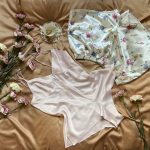When it comes to maintaining your wardrobe, having the appropriate tools and products is vital for fabric care. You'll need detergents specifically tailored for different fabrics to keep them in top condition, along with effective stain removers that handle everyday mishaps. Fabric softeners and conditioners can make a noticeable difference in softness and wrinkle reduction. Additionally, investing in essential laundry gadgets and proper ironing equipment guarantees your clothes look their best. But what about those delicate fabrics that need extra care? Understanding the correct techniques and products can make all the distinction.
Table of Contents
Key Takeaways
- Use specialized detergents for different fabrics to maintain their vividness and longevity.
- Fabric conditioners and eco-friendly alternatives reduce static cling and prolong fabric life.
- Laundry bags and dryer balls protect and soften fabrics naturally during washing and drying.
- High-quality irons and ironing boards with adjustable settings ensure professional ironing results.
- Breathable garment bags and acid-free tissue paper preserve delicate fabrics during storage.
Detergents for Different Fabrics
Selecting the correct detergent for various fabrics guarantees that your clothes remain vivid and endure for a longer period. Mastering the art of fabric care means understanding the nuances of different fabric specific detergents. For instance, delicate fabrics like silk and wool require gentle detergents that won't strip their natural fibers. On the other hand, robust materials such as denim or cotton can withstand more potent formulas designed to tackle tough stains.
In addition to traditional options, eco friendly detergents are an excellent choice for those looking to minimize their environmental impact. Many of these products are biodegradable and free from harsh chemicals, ensuring that your fabrics stay soft and your conscience clear.
For a hands-on approach, consider DIY stain removers. Creating your own natural alternatives can be both cost-effective and satisfying. Common household items like baking soda, vinegar, and lemon juice can be combined to tackle stains without the need for synthetic additives. These natural solutions are gentle on fabrics and can be tailored to suit specific needs.
Effective Stain Removers
Effective stain removers can make the difference between salvaging a favorite shirt and bidding farewell to it forever. Mastering the art of stain removal requires understanding the right tools and techniques.
Here are four essential options:
- Eco-Friendly Options: Invest in environmentally friendly stain removers that are gentle on fabrics and the environment. Products like enzyme-based cleaners work wonders on organic stains without harmful chemicals.
- DIY Solutions: Sometimes, the best solutions are homemade. A mixture of baking soda and white vinegar can tackle tough stains like coffee or wine. Just apply the paste, let it sit, and rinse thoroughly.
- Specialty Products: For those irreplaceable garments, specialty stain removers are worth every penny. Products designed specifically for fabrics like silk or wool guarantee that your delicate items remain intact while effectively removing stains.
- Professional Services: When all else fails, seek professional help. Professional cleaners have access to industrial-grade stain removers and techniques that can rescue even the most stubborn stains, ensuring your fabrics look as good as new.
Fabric Softeners and Conditioners
Now that you've mastered stain removal, let's explore how fabric softeners and conditioners can keep your clothes feeling fresh and luxurious. Fabric conditioners not only make your garments softer but also reduce static cling and wrinkles, making them easier to iron.
You'll find the benefits of fabric conditioner extend to prolonging the life of your clothes by reducing fiber wear and tear.
If you prefer natural fabric care tips, consider fabric softener alternatives like white vinegar or baking soda. Both are excellent for maintaining fabric softness without the chemicals found in commercial products.
For a more personalized touch, DIY fabric softener recipes are a great option. A simple mix of vinegar, water, and a few drops of essential oils can create a natural, effective fabric softener.
Using these alternatives can be just as effective as store-bought products while being kinder to the environment and your skin.
Essential Laundry Gadgets
A few key laundry gadgets can transform your washing routine, making it more vital and guaranteeing effectiveness. Mastering these tools won't only enhance fabric freshness but also promote fabric longevity through smart laundry hacks and proper washing machine upkeep.
Here are four essential items you should consider:
- Laundry Bags: These mesh bags protect delicate fabrics during washing, preventing snags and tears. They're perfect for lingerie, small garments, and items with intricate details, making certain they stay in excellent condition.
- Dryer Balls: Wool or rubber dryer balls help reduce drying time and soften your clothes naturally, eliminating the need for chemical fabric softeners. By enhancing air circulation, they contribute to maintaining fabric freshness and extending the lifespan of your garments.
- Lint Remover: A high-quality lint remover or roller keeps your clothes looking pristine by eliminating lint, pet hair, and other debris. This simple tool is essential for maintaining the appearance and texture of your fabrics.
- Washing Machine Cleaner: Regularly using a washing machine cleaner ensures your appliance remains in top condition. It helps eliminate residues and odors, thereby enhancing washing performance and safeguarding fabric cleanliness and longevity.
With these gadgets, you'll elevate your fabric care routine, guaranteeing your clothes remain fresh and last longer.
Proper Ironing Equipment
Securing your clothes look crisp and professional necessitates the right ironing equipment. Start with a high-quality iron that offers adjustable temperature settings and steam functions. This versatility allows you to master various ironing techniques, from pressing delicate silks to smoothing out heavy linens.
A steam iron with vertical capabilities can also refresh hanging garments, adding another layer of convenience to your fabric care routine.
Next, invest in a sturdy ironing board. Opt for one with adjustable height settings to guarantee comfort and efficiency during use. Look for ironing board accessories like a heat-resistant iron rest, which provides a safe spot to place your hot iron, and a sleeve board to manage those tricky shirt sleeves and smaller areas with precision.
Additionally, a good-quality ironing board cover with ample padding will enhance the ironing experience by ensuring a smooth, even surface.
Don't overlook a water spray bottle, a simple yet effective tool for ironing out stubborn wrinkles. Pair these essentials with proper techniques, such as ironing in straight lines and using the right amount of pressure, and you'll achieve professional results every time.
Mastering these elements will elevate your fabric care game to new heights.
Delicate Fabric Care Tools
Caring for delicate fabrics requires specialized tools to maintain their integrity and longevity. Mastering the art of delicate fabric care ensures your cherished garments and textiles remain beautiful and intact.
Here are four essential tools you'll need:
- Fabric Steamers: A fabric steamer is indispensable for wrinkle removal without the harshness of an iron. Steaming is particularly gentle on delicate materials like silk and lace, preventing damage while invigorating the fabric. Make sure you use a high-quality steamer with adjustable settings for best results.
- Gentle Brushes: For fabrics requiring more than just steaming, gentle brushes are essential. These brushes help remove dust and surface dirt from delicate fibers without causing abrasion. Use a soft-bristled brush specifically designed for silk preservation and lace maintenance.
- Mesh Laundry Bags: Washing delicate items in a mesh laundry bag offers an extra layer of protection. It prevents snagging and stretching during the wash cycle. Opt for a finely woven bag to safeguard your most fragile fabrics.
- Specialized Detergents: Regular detergents can be too harsh for delicate fabrics. Choose a specialized, mild detergent formulated for silk preservation and lace maintenance. These detergents clean effectively while being gentle on sensitive materials.
Storage Solutions for Fabrics
Proper storage solutions are important to maintaining the quality and longevity of your fabrics. Without the right methods, even the finest materials can degrade over time.
Start by organizing your wardrobe meticulously. Use breathable garment bags for delicate items like silk and wool, guaranteeing fabric preservation. These bags protect against dust and pests while allowing airflow, preventing mold and mildew.
For folded items, opt for acid-free tissue paper to wrap your fabrics. This prevents yellowing and fiber damage. Stack your fabrics in a manner that distributes weight evenly to avoid creases and distortion.
Vacuum-sealed bags can be useful for seasonal storage, but avoid long-term use as they can compress fibers excessively.
Consider the placement of your storage units. Keep your wardrobe organization away from direct sunlight, which can cause fading. Using cedar blocks or lavender sachets can deter moths and add a pleasant scent without the harsh chemicals found in mothballs.
Lastly, regular inspection is important. Periodically check stored fabrics for any signs of damage or pest activity.
Frequently Asked Questions
How Often Should I Wash Delicate Fabrics Like Silk or Wool?
Did you know that silk preservation can extend garment life by 50%? For delicate fabric maintenance, wash silk every 3-4 wears and wool every 5-6 wears. Proper wool care guarantees your pieces stay pristine longer.
What Is the Best Way to Prevent Clothes From Fading?
To prevent clothes from fading, prioritize color protection by washing them inside out with cold water. Minimize sun exposure by drying them in the shade. Use gentle detergents specifically designed for preserving fabric colors.
Can I Mix Different Fabric Types in One Laundry Load?
You shouldn't mix different fabric types in one laundry load. Fabric separation helps prevent color bleeding and protects delicate items. Use the right laundry detergent and fabric softener for each type to guarantee best care.
What Temperature Should I Use for Washing Different Fabrics?
When washing silk and wool, imagine handwashing a delicate silk blouse at a cool 30°C. For fabric care, use cold water for delicates and warm water for everyday items. Always check labels for water temperature guidance.
How Do I Remove Musty Odors From Stored Fabrics?
To remove musty odors, try musty odor removal techniques like using odor neutralizing products. Wash and thoroughly dry fabrics, then store them with silica gel packets. Vacuum sealing fabrics and proper fabric storage tips can also help.
- What Is PET Spunbond Nonwoven Fabric? - July 11, 2025
- How to Test the Quality of a Nonwoven Fabric - July 11, 2025
- The Benefits of Using Nonwoven Wallpaper in Your Home - July 11, 2025







